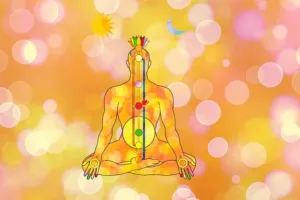Forgiveness is one of the most profound acts of emotional freedom. It is not just about letting go of past hurts but about freeing yourself from the burden of anger, resentment, and bitterness. In a world where we encounter both minor and major grievances, holding onto negative emotions can become a barrier to living a fulfilling life. Stoic philosophy offers timeless wisdom on the importance of forgiveness, providing us with the tools to cultivate inner peace, improve our relationships, and, ultimately, grow as individuals.
Why Forgiveness is Essential
When we hold onto grudges or nurse feelings of resentment, we aren’t punishing others — we’re punishing ourselves. Anger and bitterness create an emotional prison, keeping us stuck in the past and preventing us from living fully in the present. Forgiveness, however, allows us to release this emotional baggage, opening the door to healing and peace.
From a Stoic point of view, forgiveness is not a sign of weakness, but of strength. It is the ability to rise above the turmoil of emotions and make decisions based on reason and virtue. Stoicism teaches us that while we cannot always control what happens to us, we can control how we respond. And in this response, forgiveness becomes a powerful act of self-liberation.
Stoic Insights on Forgiveness
Stoicism, a philosophy that emphasizes living in accordance with nature, reason, and virtue, offers valuable guidance on the practice of forgiveness. Central to Stoic thought is the idea that external events are outside our control, but our perceptions, judgments, and reactions are entirely within our power.
1. Focus on What You Can Control
One of the key tenets of Stoic philosophy is to focus only on what you can control. When someone wrongs you, their actions are outside your sphere of influence. However, how you interpret their behavior and how you choose to react is entirely within your control. Forgiveness is about letting go of the desire to control or punish others and instead focusing on your own peace of mind.
2. Practice Empathy and Understanding
Stoics believe that we are all part of the same human experience, and that mistakes and wrongdoings are often the result of ignorance or misunderstanding. When someone wrongs you, try to understand their perspective. Perhaps they acted out of fear, insecurity, or a lack of wisdom. By practicing empathy, we can create space for compassion and forgiveness.
3. Let Go of Resentment
Resentment is a toxic emotion that harms no one but yourself. Stoic philosophers like Marcus Aurelius advised not to harbor ill will toward others, but to release those negative emotions as soon as they arise. This doesn’t mean condoning harmful behavior, but it does mean refusing to let it consume your thoughts and energy.
4. Forgiveness is an Act of Virtue
In Stoicism, virtue is the highest good. To live virtuously is to live in harmony with nature, embodying traits such as wisdom, courage, justice, and self-control. Forgiveness aligns with these virtues. It requires wisdom to see the bigger picture, courage to release negative emotions, justice to treat others fairly, and self-control to manage our own reactions.
The Power of a Forgiveness Practice
Just as with any skill, forgiveness requires practice. It’s not always easy to let go of deep-seated anger or resentment, but with daily effort, it is possible to cultivate a mindset of forgiveness. Developing a structured forgiveness practice, rooted in Stoic philosophy, can help guide you on this journey. Through regular reflection, journaling, and intentional actions, you can move closer to emotional freedom.
A forgiveness practice doesn’t just benefit your relationships with others — it strengthens your relationship with yourself. By letting go of the heavy emotional baggage you carry, you open yourself up to more joy, peace, and inner clarity.
Ready to Begin Your Forgiveness Journey?
If you’re ready to let go of the past and embrace the healing power of forgiveness, a structured practice can help you every step of the way. Take the first step toward emotional freedom and learn how to apply Stoic wisdom to your daily life.
Click here to begin your 21-day forgiveness journey based on Stoic philosophy and transform the way you relate to yourself and others.
Forgiveness is not just an act — it’s a practice. Start today, and unlock the power of forgiveness in your life.





